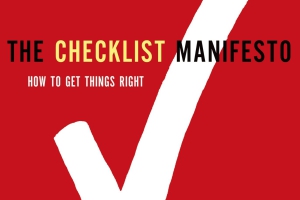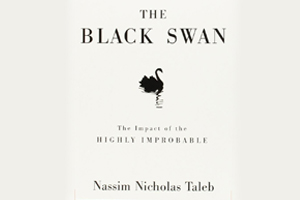Morgan Housel’s ‘The Psychology of Money’ forces you to take another look at personal finance, investing, and business success through the lens of psychology and behaviour. Generally, all these fields of study have their roots in math, data, and calculations. However, in this book, Housel highlights how everything, from your personal history and experience to your unique world view, ego, pride, marketing, and odd incentives work together to help you finally form a financial decision.
Key Takeaways
- When it comes to earning money and building wealth, it really doesn’t matter how smart you are. Instead, what really matters is how you behave.
- Even the smartest people can lose control of their emotions and plunge into financial disasters while ordinary people with no financial education, but robust behavioural skills, can become wealthy.
- It is not enough just to know how to do something. You must be able to fight with internal emotional and mental turmoil in order to make the best financial decisions.
- Considering the lack of accumulated wisdom in terms of modern finance, many of the poor financial decisions that you end up making arise from peoples’ collective inexperience.
- You must not risk what you already have and require for things which you do not have and do not actually need.
- Creating wealth and maintaining wealth are two different things. Creating wealth is easy, but keeping it is very difficult.
- While there are many ways to accumulate wealth, there is only one way to maintain it, and that involves being frugal and paranoid of potential losses.
Experience can be a boon and a bane
Your relationship with money is influenced by all your past experiences and the insights that you have gathered over the years. Just like every other person, you too will have a unique idea of how the world works. The way you see the world and react to different situations is influenced by your own unique set of circumstances, values, and experiences.
“Your personal experiences with money make up maybe 0.00000000001% of what’s happened in the world, but maybe 80% of how you think the world works.”
Take the example of two individuals, one born in America in the 1950s and the other born in the 1970s. Now, the individual who was born in the 1950s would have experienced a flat stock market during his teens and 20s. On the other hand, the one born in the 1970s would have witnessed an upward moving stock market that generated stupendous returns, during his teens and 20s. Clearly, these two individuals have had a very different experience with the stock markets and are likely to view stock markets through their own unique lens. Inevitably, the one born in the 1950s would be very cautious of the stock market and would not have much faith in its ability to generate wealth. On the other hand, the one born in the 1970s, would have a highly bullish view on the stock market and would be more inclined to invest in equities. For each individual, the decision they make would at one point in time or another be incorrect since it would be coloured by their past experiences and not necessarily based on the merits of the prevailing investment climate.
Two important factors to consider while investing are luck and risk. We have little control over either, however, both have a great deal of control on how we behave and on our investment outcomes. Take for example, Bill Gates, who is not only one of the wealthiest men in the world but also one of the most talented and hardworking individuals. However, he was also lucky enough to have attended one of the only high schools in the world that had a computer in 1968. This shaped his thinking and inclination early on. It is important to accept that due to luck and risk, 100% of your actions do not necessarily dictate 100% of your outcomes. You must make room for other elements over which you probably have little control. However, it is important to understand that extreme outcomes, whether positive or negative, are generally low probability outcomes. Thus, instead of focusing on specific individuals and case studies, it is better to evaluate broad patterns and then arrive at your own conclusion.
Stop the goalpost from moving
You should know when you have enough wealth and then stop wanting more. Throughout history, greed or a craving for ‘more’ has been the downfall of many of the rich and famous. When you keep running after more, you inevitably start taking more risk than you should. Know when to stop. Good investing is not about earning the highest returns. Instead, it is about making good enough returns for the longest period of time. Compounding is the way to create long-term wealth. In that regard, it is also important to remember that while there are many ways to get wealthy, there is only one way to stay wealthy, and that is through a combination of frugality and paranoia.
Good investments, which offer secure and steady returns, involve survival as the richest people are the ones who have been able to remain rich for the longest period of time. Avoid risking your money on ludicrous schemes which promise stupendous returns and stick to proven investment methods with good returns on an averaged basis. Aspects such as a frugal budget, flexible thinking, and loose timelines can help build a strong investment portfolio. Also, remember that acquiring wealth is not the end goal and will not make others like you or admire you more. This should not be the psychology behind wanting to get rich. Conversely, avoid judging people based on their visible wealth or lack of it.
Savings is the dealmaker
The rate at which you save is far more important than your income or your investment returns. Generally, beyond a certain income level, you will find three types of people. First are the people who save. Second are the people who don’t think that they earn enough to save. And, third are the people who think that they don’t need to save. However, over a longer period of time, it will be the people belonging to the first category who will end up successfully creating and maintaining their wealth. It is important to remember that while you can build wealth without a high income, there is no way that you can create and maintain wealth without a high savings rate. So, if you are really serious about wealth creation then avoid spending on unnecessary and lavish items because, in reality, your savings is the gap between your ego and the income you earn. The lower your needs and expenses, the higher will be your savings, as well as the value of your savings. In addition to having a high savings rate, it is equally important to be realistic and reasonable with your financial decisions. A good way to achieve this is to create a financial plan that captures your unique circumstances and requirements and stick with it for the long run.
Leave a room for error
When you are investing, always remember that you are dealing with probabilities and not certainties. Thus, you should always leave a room for error, i.e., always ensure that your investments have an adequate margin of safety. It is often said that this is the only effective way to safely navigate a world of uncertainties. While it is impossible to overcome all uncertainties, it is possible to prepare for them. The best way of doing this is by avoiding single points of failure and spreading your investments. It is also a great idea to always have a good emergency fund.
Clearly, the only thing that stands in the way of creating and maintaining great wealth is our own behaviour and how we make investment decisions. As highlighted in the book, our experiences impact our ability to make astute investment decisions. If we have had a bad experience in the stock markets then we end up holding on to the losers in our portfolio for too long and selling the winners too early. A great way of overcoming this bias is to invest in Balanced Advantage mutual funds. Before we tell you how Balanced Advantage Funds can help you reduce the impact of your behaviour on investment decision making, let us first walk you through the meaning of mutual funds. These are investment vehicles that pool investor money and invest it across multiple asset classes such as equity, debt, gold, etc. They are managed by expert fund managers who invest as per a pre-determined investment strategy. Within mutual funds, there are several categories, and one of them is hybrid mutual funds. Balanced Advantage funds are a type of hybrid mutual fund. They invest in a mix of equity, debt, and derivatives instruments and shift the portfolio exposure from one investment type to another based on the how well the investment is doing. The key here is that the shift in portfolio exposure from one investment type to another, for example, from debt to equities, is done based on a pre-determined investment strategy and triggers. This significantly reduces the impact of even the fund managers’ biases in investment decision making. This way, in an upward moving market, the Balanced Advantage Fund will increase its exposure to equities while in a falling market, it will gradually decrease equity exposure and increase debt exposure. For you as an investor, this automatic movement between debt and equity is great as it takes away the burden of deciding how to invest and when to invest. Another interesting thing mentioned in the book was about the types of savers or non-savers. There are a large majority of people who do not save as they believe that they do not earn enough to save. For such investors, investing in mutual funds through the Systematic Investment Plan (SIP) route can be ideal. When you invest in a mutual fund scheme through an SIP, you invest a fixed amount of money at time intervals that suit you. However, the best part is that you can start an SIP with as low as Rs. 500. So, if you are a regular saver then you can continue investing via SIPs and enjoy the long-term benefits of compounding and rupee-cost averaging. And, even if you have low income levels, you can still start your savings journey with low value SIPs and increase your investments as your income increases.
An investor education initiative by Edelweiss Mutual Fund.
All Mutual Fund Investors have to go through a onetime KYC process. Investor should deal only with Registered Mutual Fund (RMF). For more info on KYC, RMF and procedure to lodge/redress any complaints, visit -https://www.edelweissmf.com/kyc-norms
MUTUAL FUND INVESTMENTS ARE SUBJECT TO MARKET RISKS, READ ALL SCHEME RELATED DOCUMENTS CAREFULLY.
Trending Books
MUTUAL FUND INVESTMENTS ARE SUBJECT TO MARKET RISKS, READ ALL SCHEME RELATED DOCUMENTS CAREFULLY.













